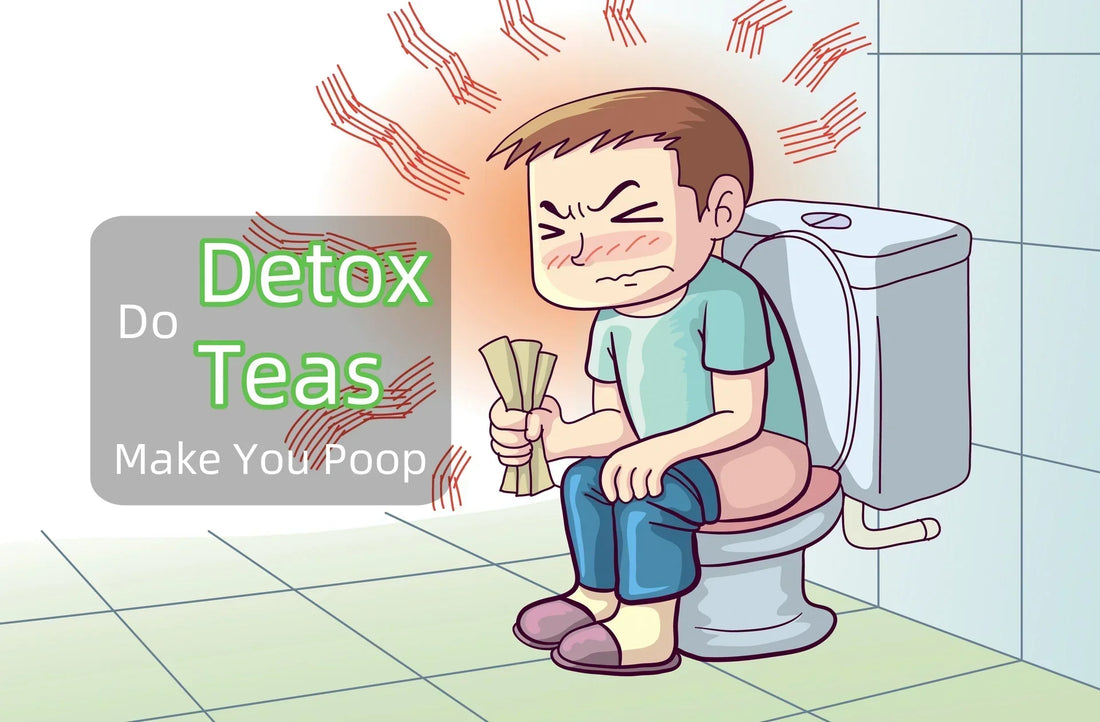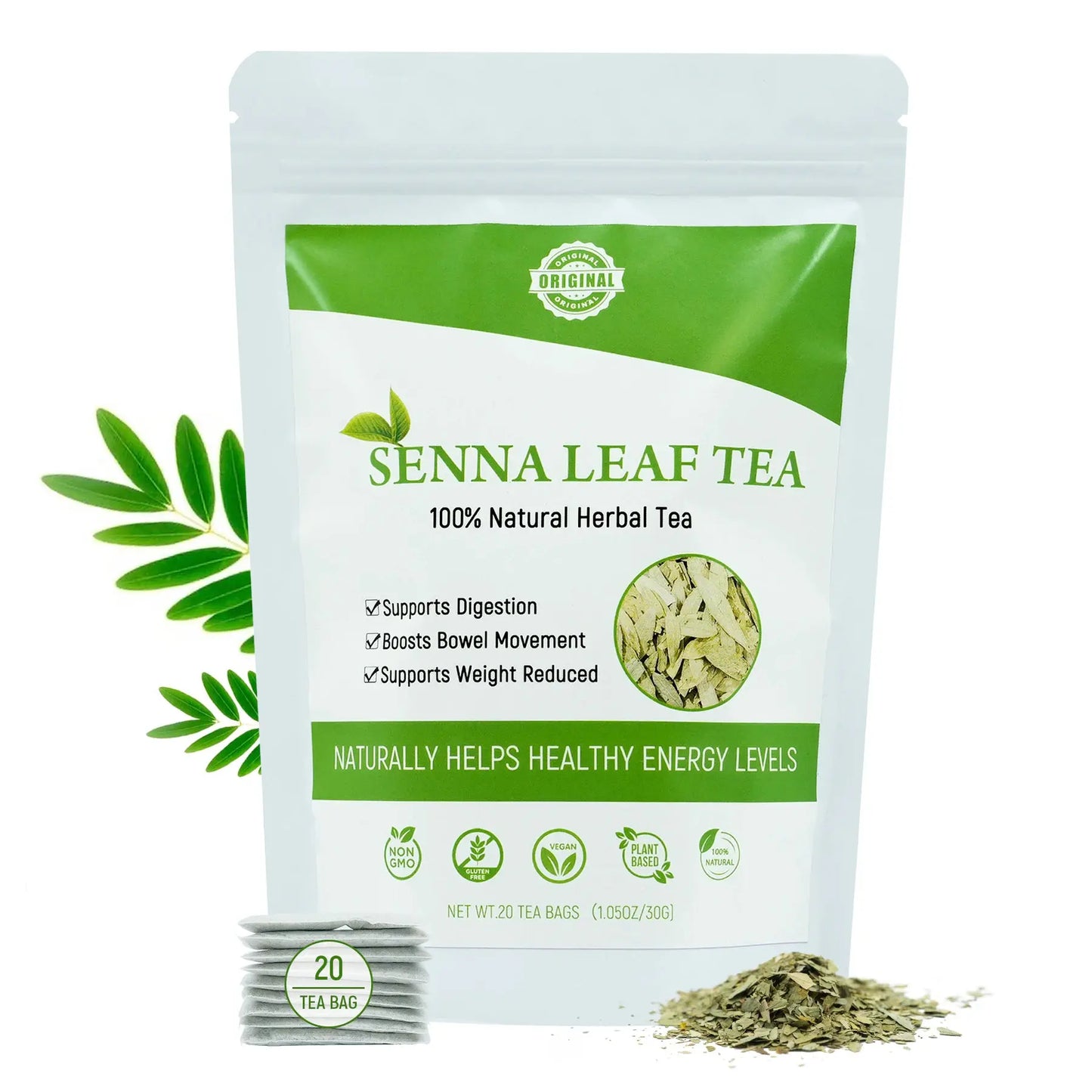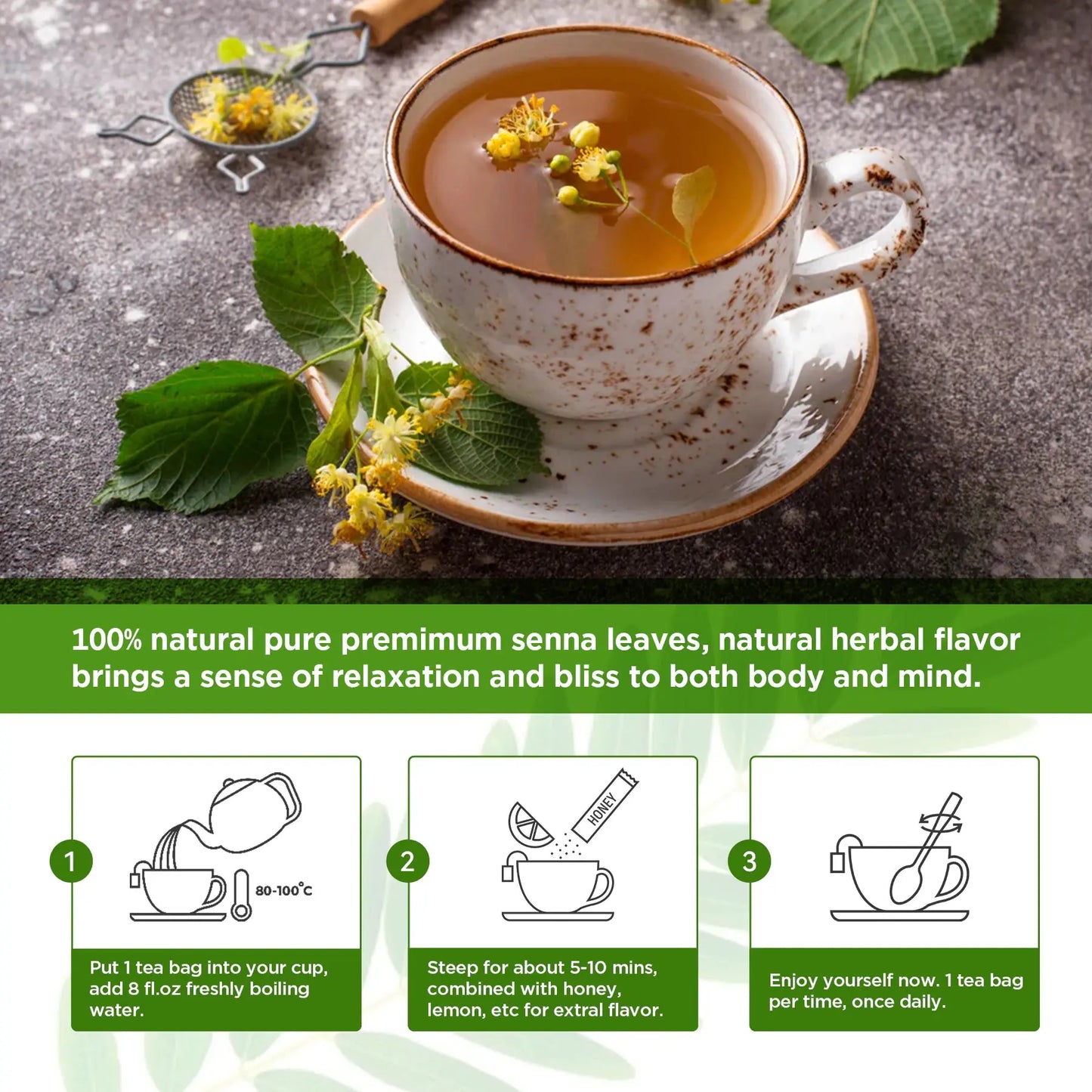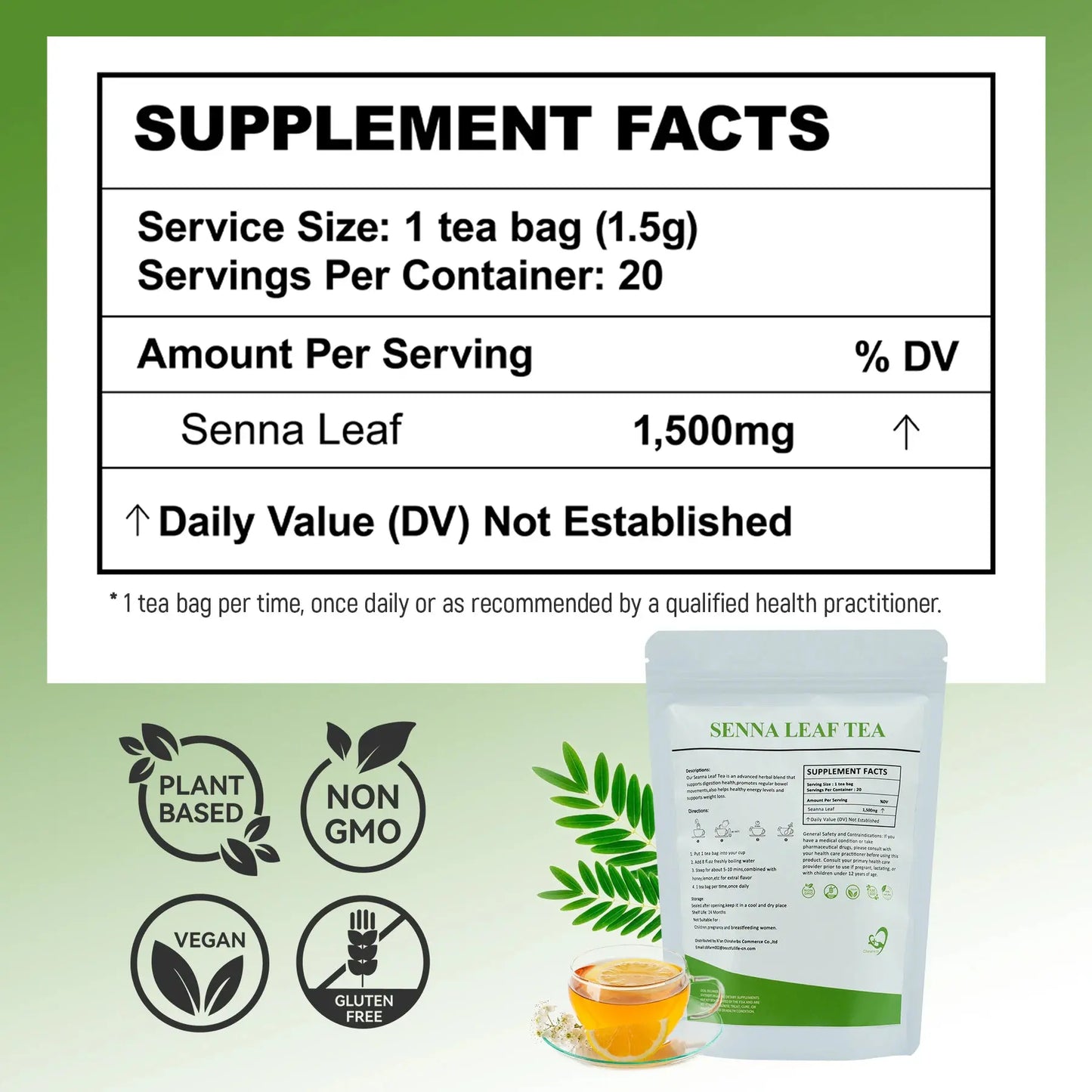Do Detox Teas Make You Poop?
HiherbsOfficial
Share
📋 Table of Contents
🌿 What Are Detox Teas?
Detox teas are herbal blends marketed as cleansing agents that claim to flush toxins from your body and promote weight loss. However, it's important to understand that detox tea is not a magical weight-loss elixir.[1]
These products are often marketed with bold claims about rapid weight loss and body cleansing, but the reality is quite different from the marketing promises. Unlike gentle herbal teas designed for specific health support, detox teas often contain harsh laxative ingredients.
💩 Do Detox Teas Cause Bowel Movements?
Yes, many detox teas do cause increased bowel movements. This bowel-promoting effect is actually a side effect, not a claimed "detox" benefit. The effect is temporary and should not be confused with genuine health benefits.[2]
Many people mistake this immediate effect for proof that the tea is "working," but it's simply the result of laxative ingredients stimulating the digestive system.
🔬 Why This Happens
Most detox teas contain laxative ingredients that stimulate bowel movements. These ingredients work by irritating the digestive tract and forcing rapid elimination.[3]
Common laxative ingredients include:
- 🌱 Senna: A natural stimulant laxative that can cause cramping (found in products like Herbal Senna Tea)[4]
- 🌿 Cascara sagrada: Another powerful stimulant laxative[5]
- 🌵 Aloe vera: Contains compounds with laxative properties[6]
- 🌾 Other herbal stimulants: Various plants that irritate the digestive tract
These ingredients stimulate the colon muscles, causing rapid and often uncomfortable bowel movements. This is very different from gentle digestive support provided by properly formulated herbal teas.
⚠️ Potential Health Risks
The laxative effects of detox teas come with several serious potential health risks:[7]
Long-term use of laxative-containing detox teas can lead to a condition called "lazy bowel syndrome," where your digestive system becomes dependent on external stimulation to function normally.[13]
✅ Safer Alternatives for Digestive Health
If you're looking to improve your digestive health naturally, consider these evidence-based approaches:[14]
These natural approaches work with your body's systems rather than forcing artificial responses, leading to sustainable improvements in digestive health. For liver support and gentle detoxification, consider natural options like Dandelion Liver Tea, which supports your body's natural detox processes without harsh laxative effects.[20]
🎯 Conclusion
While detox teas may cause bowel movements, this effect is due to laxative ingredients rather than any genuine detoxification process. The temporary nature of these effects, combined with potential health risks, makes detox teas a questionable choice for long-term digestive health.
Your body has its own natural detoxification systems - primarily your liver and kidneys - that work effectively without the need for special teas or supplements.[21] These organs are incredibly efficient at removing toxins and waste products from your body.
Instead of relying on potentially harmful detox teas, focus on supporting your body's natural processes through proper nutrition, hydration, and lifestyle choices. If you're interested in herbal support for specific health concerns, consider gentle, targeted options like Hormone Balancing Herbal Tea or other scientifically-formulated herbal blends.
🌿 At Hiherbs, we believe in providing science-based information about herbal products. Always consult with a healthcare professional before starting any new supplement regimen, especially if you have underlying health conditions.
📚 References
- Klein, A. V., & Kiat, H. (2015). Detox diets for toxin elimination and weight management: a critical review of the evidence. Journal of Human Nutrition and Dietetics, 28(6), 675-686.
- Buchanan, R., et al. (2017). What goes up must come down: the burden of biphasic weight changes from laxative abuse. Clinical Nutrition, 36(3), 1130-1133.
- Roerig, J. L., et al. (2010). Laxative abuse: epidemiology, diagnosis and management. Drugs, 70(12), 1487-1503.
- Vanderperren, B., et al. (2005). Acute hepatitis induced by greater celandine (Chelidonium majus). Journal of Hepatology, 42(4), 583-585.
- Stickel, F., et al. (2005). Herbal hepatotoxicity. Journal of Hepatology, 43(5), 901-910.
- Boudreau, M. D., & Beland, F. A. (2006). An evaluation of the biological and toxicological properties of Aloe barbadensis. Journal of Environmental Science and Health, 24(1), 103-154.
- Müller-Lissner, S., et al. (2017). Myths and misconceptions about chronic constipation. American Journal of Gastroenterology, 112(1), 137-145.
- Wald, A. (2016). Constipation: Advances in diagnosis and treatment. JAMA, 315(2), 185-191.
- Bharucha, A. E., et al. (2013). Chronic constipation. Mayo Clinic Proceedings, 88(10), 1141-1146.
- Hammer, H. F. (2012). Medical complications of eating disorders. Gastroenterology Clinics of North America, 41(2), 269-286.
- Roerig, J. L., et al. (2010). Laxative abuse: epidemiology, diagnosis and management. Drugs, 70(12), 1487-1503.
- Oster, J. R., et al. (1980). Laxative abuse syndrome. American Journal of Gastroenterology, 74(5), 451-458.
- Müller-Lissner, S. (1988). What has happened to the cathartic colon? Gut, 29(9), 1180-1183.
- Eswaran, S., et al. (2013). Fiber and functional gastrointestinal disorders. American Journal of Gastroenterology, 108(5), 718-727.
- Anderson, J. W., et al. (2009). Health benefits of dietary fiber. Nutrition Reviews, 67(4), 188-205.
- Boilesen, S. N., et al. (2019). Water and fluid intake in the prevention and treatment of functional constipation in children and adolescents. European Journal of Clinical Nutrition, 73(7), 958-964.
- Johannesson, E., et al. (2011). Physical activity improves symptoms in irritable bowel syndrome. Gastroenterology, 141(3), 890-898.
- McKay, D. L., & Blumberg, J. B. (2006). A review of the bioactivity and potential health benefits of chamomile tea. Phytotherapy Research, 20(7), 519-530.
- Hill, C., et al. (2014). Expert consensus document: The International Scientific Association for Probiotics and Prebiotics consensus statement on the scope and appropriate use of the term probiotic. Nature Reviews Gastroenterology & Hepatology, 11(8), 506-514.
- Schütz, K., et al. (2006). Taraxacum—a review on its phytochemical and pharmacological profile. Journal of Ethnopharmacology, 107(3), 313-323.
- Hodges, R. E., & Minich, D. M. (2015). Modulation of metabolic detoxification pathways using foods and food-derived components. Journal of Nutrition and Metabolism, 2015, 760689.











